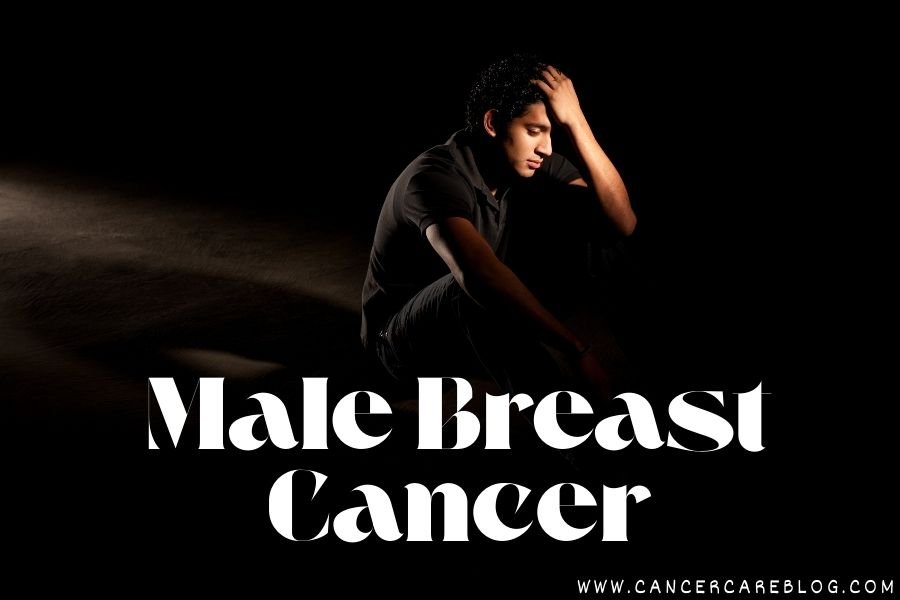When people hear the words “breast cancer,” most think it only affects women. That’s not true.
Yes, it’s rare—but breast cancer in men does happen. And when it does, it often goes unnoticed for longer. Why? Because most men don’t think they’re at risk.
This article is here to raise awareness. I’m not a doctor or a survivor, but I’ve studied the facts, listened to stories, and want to help you understand what many people overlook. Whether you’re a man, or you care about one, here’s what you should know.
Can Men Really Get Breast Cancer?
Yes, absolutely. Men have breast tissue too. It’s not as much as women, but it’s there. And that means male breast cancer is possible.
About 1 in every 100 breast cancer cases in the U.S. is in a man. That may seem small—but it still affects thousands of men each year.
Most cases are diagnosed between the ages of 60 and 70, but it can happen earlier.
How Breast Cancer Happens in Men
How breast cancer happens is similar in both men and women. It starts when some cells in the breast begin to grow out of control. These cells form a lump or mass—what we call a tumor.
In men, most breast cancers start in the ducts (the tubes that carry milk in women). But men don’t produce milk, so many don’t notice these changes early on.
There are different types of male breast cancer, including:
-
Invasive ductal carcinoma (most common)
-
Ductal carcinoma in situ (DCIS)
-
Inflammatory breast cancer (rare but aggressive)
Warning Signs to Watch For
Many men don’t realize the symptoms until the cancer has spread. That’s why it’s important to know what to look for.
Here are signs that could be breast cancer in men:
-
A lump in the chest area
-
Swelling or pain in the breast
-
Skin dimpling or puckering
-
Nipple turning inward
-
Redness or scaling of the nipple or skin
-
Discharge from the nipple (clear or bloody)
If you notice anything strange, don’t ignore it. Talk to your doctor.
Who Is at Risk?
Some men are at higher risk than others. These risk factors include:
-
Family history of breast cancer
-
BRCA1 or BRCA2 gene mutations
-
Radiation exposure to the chest
-
High estrogen levels (due to liver disease, obesity, or medications)
-
Klinefelter syndrome (a genetic condition)
-
Heavy alcohol use
Having one or more risk factors doesn’t mean you’ll get cancer—but it does mean you should be more aware of changes in your body.
How Is It Diagnosed?
If your doctor suspects male breast cancer, they may do the following tests:
-
Clinical breast exam
-
Mammogram (yes, men can get them too)
-
Ultrasound
-
Biopsy (removing tissue to check for cancer cells)
Early diagnosis can make a big difference. Most men are diagnosed at a later stage, which makes treatment harder.
How Is It Treated?
Treatment for breast cancer in men depends on the stage and type of cancer. It’s very similar to treatment in women.
Treatment options include:
-
Surgery (most common – often a mastectomy)
-
Radiation therapy
-
Chemotherapy
-
Hormone therapy (like tamoxifen)
-
Targeted therapy
Your doctor will create a plan based on your needs. Many men recover well with the right treatment, especially if the cancer is caught early.
Recurrence of Breast Cancer in Men
One question I often hear is: Can breast cancer come back in men?
Yes, there is a chance of recurrence of breast cancer in men, just like in women. It depends on:
-
The stage of the cancer when it was first diagnosed
-
The treatment given
-
Whether the cancer spread to the lymph nodes
That’s why regular follow-up appointments are so important. Your doctor may recommend scans, blood tests, or physical exams every few months for a while after treatment ends.
Emotional Impact and Support
Being a man with breast cancer can feel isolating. Many men don’t talk about it. Some even feel embarrassed.
But cancer has no gender.
Support groups, counseling, and online communities can help men feel less alone. Mental health is just as important as physical health.
Final Thoughts
Breast cancer in men may be rare, but it’s real. And just because something is rare doesn’t mean it should be ignored.
If you’re a man reading this, take a moment to check yourself. Feel your chest for any unusual lumps. If something doesn’t feel right, get it checked. Don’t wait.
If you’re a woman, share this with the men in your life. Fathers, brothers, uncles, sons—they need to know, too.
Asking questions, knowing your risk, and catching things early can save lives.
Sources:
American Cancer Society – Breast Cancer in Men
Mayo Clinic – Male Breast Cancer



